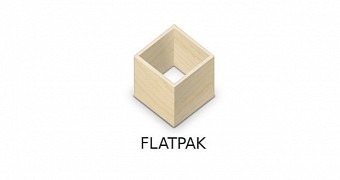The Flatpak Linux application sandboxing and distribution framework, formerly XDG-App, used for building and distributing conternized apps on Linux desktops, has hit today the 1.0 milestone.
After being in development for more than three years, the widely-used Flatpak Linux application sandboxing and distribution framework has finally reached the 1.0 version, which means that it's mature enough to be deployed and used in production environments for distributing and running Linux apps.
"Flatpak 1.0 is the first version in a new stable release series. This new 1.x series is the successor to the 0.10.x series, which was first introduced in October 2017. 1.0 is the new standard Flatpak version, and distributions are recommended to update to it as soon as possible," said developer Alexander Larsson.
Here's what's new in Flatpak 1.0
Highlights of the Flatpak 1.0 release compared with the Flatpak 0.10.0 series include a new Flatpak portal for allowing Linux apps to create sandboxes and restart themselves, much master installation and updates speeds, support for marking apps as EOL (end-of-life), as well as a new up-front verification model for permissions.
Flatpak 1.0 can expose host's TLS (Transport Layer Security) certificates to sandboxed applications, supports the latest OCI bundles specification, lets sandboxed apps to request access host's SSH (Secure Shell) agent for secure access to Git repositories or remote servers, and allows apps to access Bluetooth devices.
Furthermore, the P2P (peer-to-peer) installation method for installing Flatpak apps via USB flash drives or the local network is now enabled by default and supported in all builds. A new fallback-x11 permission has been implemented in Flatpak 1.0 to allow X11 access for Flatpaks apps running in X11 sessions.
Flatpak 1.0 also introduces a new tool called flatpak-spawn that can be used for running host commands and creating new sandboxes from an app. Several new commands and options have been added as well in this major release, along with various other improvements and dependency changes.
Under the hood, Flatpak 1.0 requires some of the latest Open Source technologies, including OSTree 2018.7, Bubblewrap 0.2.1 or later (version 0.3.0 is included by default), and drops support for filesystems that support xattr. A full changelog is available here for the tech-savvy, and you can download Flatpak 1.0.0 from GitHub.
Linux OS vendors are urged to update or adopt the Flatpak 1.0 release for their current or upcoming operating system releases to offer users the best possible Linux application sandboxing experience. Flatpak rivals Canonical's Snap to allow Linux users to install the latest versions of apps that aren't available in the standard repositories.

 14 DAY TRIAL //
14 DAY TRIAL //